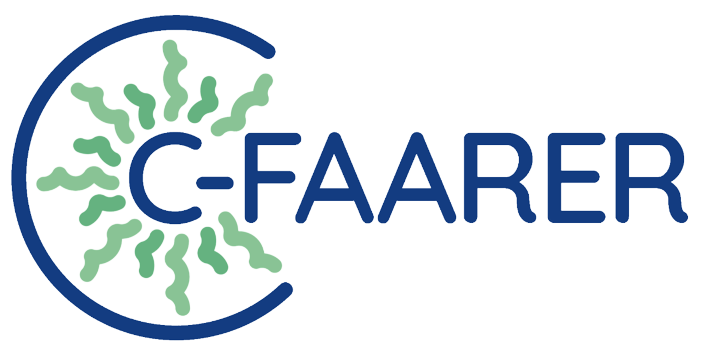Exploring Community-Driven Regenerative Ocean Farming and Kelp Forest Restoration
The Norwegian Seaweed Association (NSA), in collaboration with the EU-funded C-FAARER project and Brian Tsuyoshi Takeda, the founder of Urchinomics, recently hosted an insightful webinar focused on "Community-Driven Regenerative Ocean Farming and Kelp Forest Restoration” on the Connecting Nature Enterprise Platform. This event brought together experts and stakeholders to discuss innovative approaches to ocean farming that balance economic viability with environmental restoration.
Introduction to Community-Driven Regenerative Ocean Farming
Dr. Dharm Kapletia from Trinity College Dublin kicked off the webinar with an overview of community-driven regenerative ocean farming, a pioneering concept that combines the business of seaweed farming with ecological and environmental practices and takes a collaborative approach to involving coastal communities and stakeholders in mitigating risks and sharing benefits. The C-FAARER project, led by a consortium of five partners including the NSA, is investigating the challenges associated with transitioning towards a regenerative model through collaboration with Norwegian seaweed farmers and others involved in the value chain.
Urchinomics: A For-Profit Model Balancing People, Planet, and Profit
Brian Tsuyoshi Takeda, the founder of Urchinomics, presented a compelling case study on how for-profit models can contribute to environmental restoration. Urchinomics focuses on the removal of overpopulated sea urchins, which devastate kelp forests, and repurposes them into premium seafood products. This process not only helps restore kelp forests but also provides a sustainable income stream for coastal communities.
He also highlighted the effectiveness of Urchinomics’ circular business model, where the pursuit of profit directly contributes to environmental restoration. By converting otherwise valueless sea urchins into high-demand products, Urchinomics creates a market-driven solution that benefits both the environment and local economies.
Workshops and Business Models for Seaweed Farming
Isobel Fletcher, CEO of Horizon Nua, closed the webinar by introducing upcoming initiatives aimed at supporting seaweed businesses in Norway and Ireland. Horizon Nua plans to conduct workshops in October to explore different business models that could be applicable to the seaweed industry, including both for-profit and cooperative models. The goal is to provide practical guidance and support for businesses looking to integrate community-based approaches and explore investment opportunities.
Three Key Takeaways
1.Community-Driven Approaches Can Enhance Sustainability: The integration of community-based models into regenerative ocean farming not only supports environmental restoration but also strengthens the socioeconomic fabric of coastal communities.
2. For-Profit Models Can Align with Environmental Goals: Urchinomics’ innovative approach demonstrates that for-profit ventures can play a critical role in environmental restoration, offering a sustainable solution that benefits both people and the planet.
3. Collaboration and Education are Essential: The upcoming workshops by Horizon Nua underscore the importance of continuous learning and collaboration among stakeholders in the seaweed industry. By exploring diverse business models, the industry can identify sustainable pathways for growth and environmental stewardship.
Search the Blog….
Visit us on Instagram
















